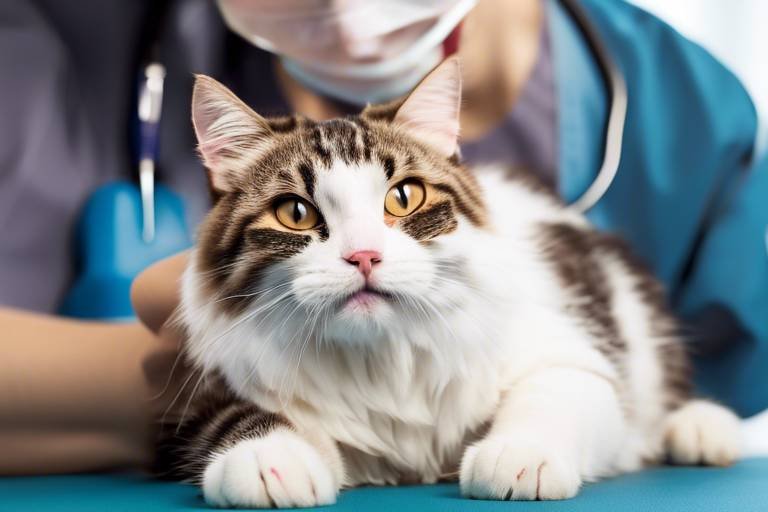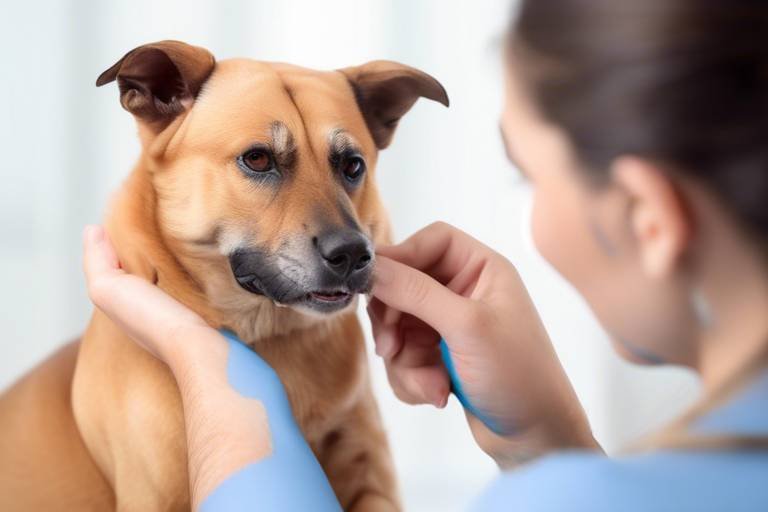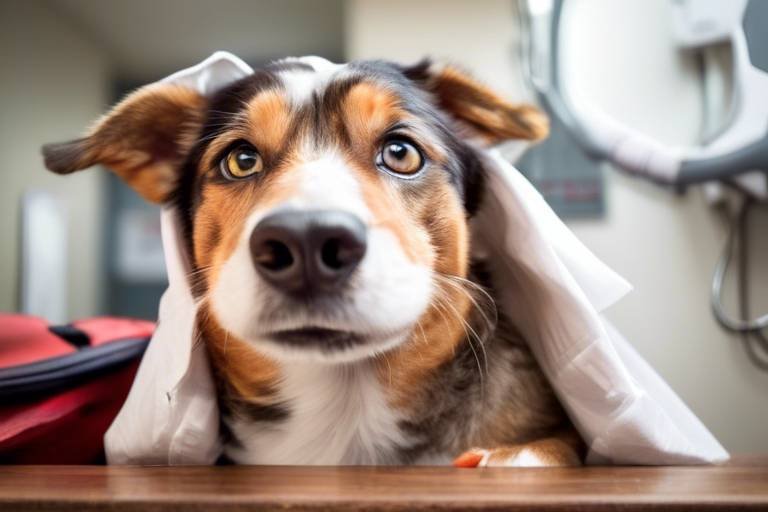The Benefits of Regular Vet Check-ups for Cats
As a cat owner, you might often wonder about the best ways to keep your furry friend happy and healthy. Regular vet check-ups are not just a formality; they are a vital component of your cat’s overall health strategy. Think of these visits as a **preventive shield** that protects your feline companion from unforeseen health issues. Just like we visit our doctors for routine check-ups, our cats also need that kind of attention to ensure they lead long, vibrant lives. In this article, we will delve into the numerous benefits of routine veterinary visits for cats, emphasizing health maintenance, early disease detection, and overall well-being.
Regular vet check-ups serve as a cornerstone of preventive care. Imagine being able to spot a potential health problem before it becomes a crisis. This proactive approach is not only beneficial for your cat's health but can also save you a significant amount of money in the long run. Routine visits allow veterinarians to monitor your cat's health, recommend necessary vaccinations, and provide guidance on dietary and lifestyle adjustments. By investing in preventive care, you're essentially investing in your cat's future.
One of the most significant advantages of routine check-ups is the early detection of potential illnesses. Cats are notorious for hiding their discomfort, making it challenging for even the most observant owners to recognize when something is wrong. During these visits, veterinarians can perform thorough examinations and run diagnostic tests to catch any issues that may be brewing beneath the surface. Early intervention is crucial; it can lead to better treatment outcomes and significantly improve your pet's quality of life.
Understanding common health issues that can be detected during check-ups is vital for ensuring your cat's health and longevity. Here are a couple of common problems that can be identified:
- Dental Disease: Many cats suffer from dental issues that can go unnoticed for a long time.
- Obesity: Overweight cats are prone to a range of health problems, including diabetes and joint issues.
Regular vet visits help monitor your cat's dental health, preventing issues like periodontal disease that can lead to serious health complications if left untreated. Just like humans, cats need dental care too! A veterinarian can provide professional cleanings and recommend at-home care practices to keep your cat's teeth and gums healthy.
Veterinarians can provide guidance on maintaining a healthy weight for your cat, which is crucial in preventing obesity-related diseases and ensuring overall wellness. They often assess your cat's body condition score and suggest dietary changes or exercise routines tailored specifically for your furry friend.
Regular check-ups ensure that your cat's vaccinations are up to date, protecting them from various infectious diseases and contributing to their long-term health. Vaccination is like a **fortress** that shields your cat from harmful pathogens. It's essential not to overlook this aspect of your cat's care, as it can mean the difference between life and death in some cases.
Veterinarians can assess behavioral issues during check-ups, providing insights into your cat's mental health and suggesting strategies to improve their well-being. Behavioral problems can stem from various factors, including stress, anxiety, or environmental changes. By addressing these issues during vet visits, you can create a more harmonious living environment for both you and your cat.
Understanding your cat's stress and anxiety levels during vet visits can lead to better management strategies, ensuring a more comfortable experience for both pet and owner. Techniques such as gradual acclimatization to the vet's office or the use of calming products can make a world of difference. Remember, a relaxed cat is a happy cat!
Regular vet visits provide opportunities for socialization, helping your cat become accustomed to new environments and reducing fear during future visits. Just as humans benefit from social interactions, so do our feline friends. These experiences can help your cat develop a more confident demeanor, making future vet trips less stressful.
Veterinarians offer valuable education and support to cat owners during check-ups, empowering them with knowledge on nutrition, behavior, and general care to enhance their pet's quality of life. This support can be invaluable, as it equips you with the tools needed to provide the best possible care for your cat. Whether it’s understanding the right diet or recognizing signs of illness, your vet is a treasure trove of information.
- How often should my cat visit the vet? - It's generally recommended to take your cat for a check-up at least once a year, but older cats or those with existing health issues may need more frequent visits.
- What should I expect during a vet visit? - A typical visit includes a physical examination, discussions about your cat's health and behavior, vaccinations, and possibly lab tests.
- Are vet visits stressful for cats? - They can be, but with proper preparation and gradual acclimatization, you can help minimize your cat's anxiety.

Importance of Preventive Care
When it comes to our beloved feline friends, preventive care is the cornerstone of maintaining their health and happiness. Just like a well-oiled machine, regular vet check-ups keep everything running smoothly. Imagine if you could catch a potential problem before it becomes a full-blown crisis—wouldn't you want that for your cat? Regular visits to the veterinarian not only help in identifying health issues early on but also significantly reduce the risk of severe illnesses that could lead to costly treatments down the line.
Think of it this way: a routine check-up is like a safety net for your cat. It allows veterinarians to monitor vital health indicators such as weight, dental health, and overall physical condition. During these visits, vets can detect subtle changes that might go unnoticed at home. For instance, a slight weight gain could indicate an underlying issue, and catching it early can prevent obesity-related diseases. The proactive approach of preventive care can save both lives and money, making it a smart investment for any pet owner.
Moreover, regular vet visits foster a strong relationship between you, your cat, and the veterinary team. This connection can make a world of difference when your cat needs medical attention in the future. A familiar environment and a trusted veterinarian can ease stress for both you and your furry companion. In fact, many pet owners find that their cats are more relaxed during visits when they have established a routine with their vet.
To illustrate the benefits further, let’s take a look at some key advantages of preventive care:
- Early Detection: Identifying health issues before they escalate can lead to more effective treatment options.
- Cost Savings: Preventive care can significantly reduce long-term veterinary costs by avoiding expensive emergency treatments.
- Improved Quality of Life: Regular check-ups contribute to a longer and healthier life for your cat, allowing them to maintain their playful and energetic nature.
In summary, the importance of preventive care cannot be overstated. Regular veterinary visits are not just a formality; they are essential for ensuring that your cat lives a long, healthy, and happy life. By prioritizing these check-ups, you are taking a significant step towards being a responsible and caring pet owner.
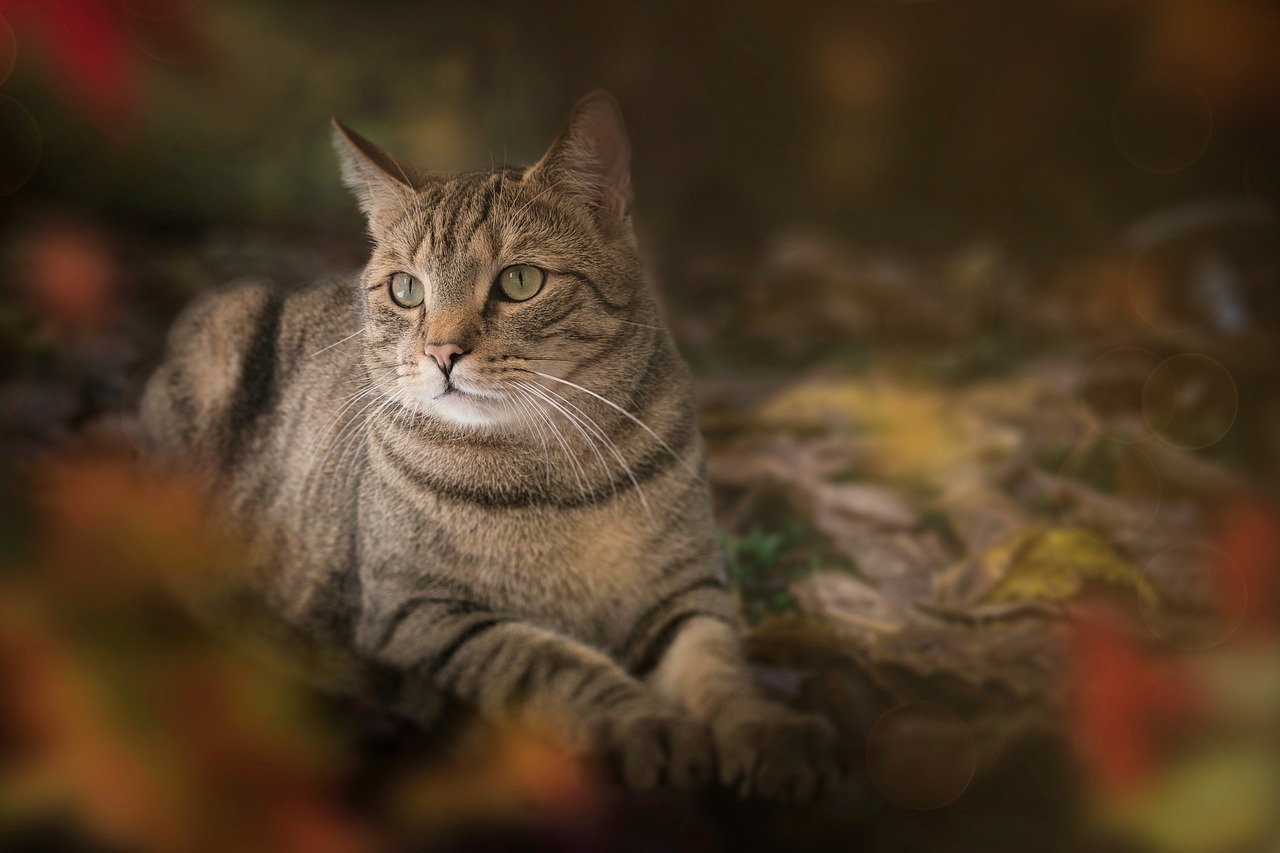
Early Detection of Illness
Routine check-ups at the vet are more than just a formality; they are a vital lifeline for your cat's health. Think of them as a **preventive shield** against the unexpected. When you take your feline friend for regular visits, you are not only ensuring that they receive necessary vaccinations and treatments, but you are also allowing your veterinarian to monitor their overall health closely. This proactive approach is essential because many illnesses can develop silently, without any noticeable symptoms until they become severe. By catching these issues early, you can dramatically improve the treatment outcomes and, ultimately, the quality of life for your beloved pet.
During these check-ups, veterinarians perform a thorough examination that includes assessing your cat's weight, coat condition, and overall demeanor. They also check vital signs such as heart rate and temperature, which can reveal underlying health problems. For instance, if your cat is gaining weight rapidly, it may indicate potential health issues, such as diabetes or thyroid problems. Likewise, if your cat seems lethargic or has a dull coat, these could be signs of more serious conditions that need immediate attention.
Some common health issues that can be detected during these early assessments include:
- Dental Disease: Many cats suffer from dental issues that can lead to serious health complications if not addressed.
- Obesity: Overweight cats are prone to numerous health problems, including joint issues and diabetes.
- Kidney Disease: This is particularly common in older cats and can be managed more effectively if caught early.
- Hyperthyroidism: A common condition in older cats that can lead to weight loss and increased appetite if not detected early.
Moreover, early detection can save you significant amounts of money in the long run. Treating a condition in its early stages is usually less expensive than dealing with advanced disease. For example, a simple dental cleaning can prevent the need for more extensive procedures later on, which can be both costly and stressful for your cat. By investing in regular vet visits, you are not just safeguarding your cat's health; you are also making a smart financial decision.
In summary, early detection of illness through regular veterinary check-ups is crucial for maintaining your cat's health. It allows for timely interventions, which can lead to better outcomes and a longer, healthier life for your feline companion. So, the next time you think about skipping that vet appointment, remember: a stitch in time saves nine!
- How often should I take my cat to the vet? It's generally recommended to visit the vet at least once a year for a healthy adult cat, and more frequently for kittens or senior cats.
- What should I expect during a routine check-up? Expect a thorough examination, vaccinations, and discussions about your cat's diet and behavior.
- Can I do anything to prepare my cat for a vet visit? Yes! Try to acclimate your cat to its carrier and practice handling them gently to reduce stress during the visit.
Common Health Issues in Cats
When it comes to our feline companions, understanding common health issues is crucial for ensuring their well-being and longevity. Just like humans, cats can face a variety of health challenges that may go unnoticed without regular veterinary check-ups. By being aware of these issues, you can take proactive steps to keep your furry friend healthy and happy. Some of the most prevalent health concerns include dental disease, obesity, kidney disease, and hyperthyroidism.
One of the most overlooked aspects of cat health is dental health. Many cat owners are surprised to learn that dental disease can affect their pets significantly. According to studies, nearly 70% of cats over the age of three suffer from some form of dental disease. Regular vet visits allow for monitoring of your cat's dental health, helping to prevent issues like periodontal disease. This condition can lead to severe complications, including infections that could affect the heart and other organs if left untreated.
Obesity is another serious concern that has become increasingly common among cats. With the rise of indoor living and less physical activity, many cats are at risk of becoming overweight. This can lead to a host of health issues, including diabetes, arthritis, and heart disease. During routine check-ups, veterinarians can provide tailored advice on diet and exercise, helping to maintain a healthy weight for your feline friend. Remember, a few extra pounds can make a huge difference in your cat's quality of life!
Kidney disease is often a silent threat to cats, particularly as they age. It's essential to understand that cats are masters at hiding their discomfort, making it challenging for owners to detect underlying issues. Regular check-ups can help identify early signs of kidney dysfunction, allowing for timely intervention and management. The earlier kidney disease is caught, the better the prognosis for your cat.
Lastly, hyperthyroidism is a common condition found in older cats, characterized by an overproduction of thyroid hormone. Symptoms may include increased appetite, weight loss, and hyperactivity. If left untreated, hyperthyroidism can lead to serious complications, including heart disease. Routine check-ups can help catch this condition early, ensuring your cat receives the appropriate treatment.
In conclusion, being aware of these common health issues is vital for any cat owner. The key takeaway is that regular veterinary visits can help detect potential problems early, leading to better health outcomes for your beloved pet. After all, our cats rely on us to ensure their health and happiness!
- How often should I take my cat to the vet? - It's generally recommended to take your cat for a check-up at least once a year, but older cats or those with health issues may require more frequent visits.
- What should I expect during a routine vet visit? - A routine check-up typically includes a physical examination, vaccinations, dental checks, and discussions about your cat's diet and behavior.
- Are there any signs I should look for that indicate my cat needs to see a vet? - Yes, signs such as changes in appetite, weight loss, vomiting, or changes in behavior can indicate that your cat needs a veterinary visit.
- Can I prevent health issues in my cat? - Yes, regular vet visits, a balanced diet, exercise, and proper dental care can help prevent many health issues in cats.
Dental Health
Just like humans, cats need regular dental care to maintain their overall health. It's easy to overlook your feline friend's teeth, especially since they tend to hide their discomfort. However, routine vet visits play a crucial role in monitoring your cat's dental health. During these check-ups, veterinarians can spot early signs of dental disease, such as gingivitis or periodontal disease, which can lead to more severe health issues if left untreated. Imagine if you had a toothache but never got it checked out; it could escalate into something much worse, right? The same goes for your cat!
One of the most common dental issues in cats is periodontal disease, which affects the tissues surrounding the teeth. This condition can lead to pain, tooth loss, and even infections that may spread to other parts of the body. Regular vet visits allow for professional cleanings and assessments, ensuring that your cat's teeth and gums are in tip-top shape. Think of it as a dental check-up for your furry friend, where they can get a thorough cleaning and any necessary treatments.
Additionally, veterinarians can provide guidance on proper at-home dental care. Here are some tips that your vet might suggest:
- Brush your cat's teeth regularly with a toothbrush designed for pets.
- Introduce dental treats that can help reduce plaque and tartar buildup.
- Provide chew toys that promote dental health.
By taking these steps, not only can you prevent dental issues, but you can also enhance your cat's overall well-being. It's like giving them a ticket to a healthier, happier life! Remember, a healthy mouth contributes to a healthy body. Poor dental health can lead to systemic issues, affecting the heart, liver, and kidneys. So, don't underestimate the importance of keeping your cat's teeth clean and healthy. Regular vet check-ups are your best defense against these problems, ensuring that your feline friend can enjoy their meals without pain and live a long, vibrant life.
Obesity Prevention
Obesity in cats is a growing concern that can lead to a multitude of health issues, including diabetes, joint problems, and heart disease. As a responsible pet owner, it's crucial to take proactive steps in preventing obesity before it becomes a serious problem. Regular veterinary check-ups provide an excellent opportunity for veterinarians to assess your cat's weight and body condition. They can help you understand what a healthy weight looks like for your feline friend, as it can vary significantly based on breed, age, and overall health.
During these visits, your vet can offer personalized advice on nutrition and portion control. Did you know that over 50% of cats in the U.S. are classified as overweight or obese? This statistic highlights the importance of maintaining a healthy weight. Your veterinarian may suggest a tailored diet plan that suits your cat's specific needs. For example, switching to high-quality, protein-rich food can help your cat feel fuller while consuming fewer calories.
Additionally, regular check-ups allow for discussions about your cat's lifestyle. Is your kitty getting enough exercise? Cats are natural hunters, and engaging them in play can be an effective way to keep them active. Your vet can recommend various toys and activities that stimulate your cat's mind and body, such as:
- Interactive toys that mimic prey
- Laser pointers for chase games
- Cat trees for climbing and exploring
Monitoring your cat’s weight is not just about aesthetics; it’s about ensuring their overall health and longevity. Keeping a record of your cat's weight during each vet visit can help track their progress and identify any concerning trends early on. If your cat is overweight, your veterinarian can guide you through a safe weight loss program that includes gradual dietary changes and increased physical activity.
Ultimately, preventing obesity is a team effort between you and your veterinarian. By taking advantage of regular check-ups, you can ensure your cat maintains a healthy weight and enjoys a happy, active life. Remember, a healthy cat is a happy cat, and your commitment to their well-being will pay off in the long run!
- How often should my cat see the vet? Ideally, your cat should have a check-up at least once a year, but older or at-risk cats may need more frequent visits.
- What signs should I look for to determine if my cat is overweight? Look for a noticeable increase in weight, difficulty in grooming, or the inability to jump onto furniture easily.
- Can I feed my cat homemade food? Yes, but it's essential to consult your vet to ensure the diet is balanced and meets your cat's nutritional needs.
Vaccination and Immunization
When it comes to keeping your feline friend healthy, play an essential role. Just like humans, cats need vaccines to protect them from various infectious diseases that can pose serious health risks. Regular vet check-ups ensure that your cat's vaccinations are up to date, which is crucial for their long-term health and well-being.
Vaccines work by training your cat's immune system to recognize and fight off specific diseases. For example, core vaccines such as the FVRCP vaccine protect against feline viral rhinotracheitis, calicivirus, and panleukopenia, while rabies vaccination is vital for preventing this deadly virus. By adhering to a vaccination schedule recommended by your veterinarian, you can help shield your cat from these potentially life-threatening conditions.
It's important to note that not all vaccines are created equal. Some are considered core vaccines, which are essential for all cats, while others are classified as non-core vaccines, recommended based on your cat's lifestyle and risk factors. For instance, if your cat spends time outdoors or is around other animals frequently, they may need additional vaccines to protect against diseases like feline leukemia (FeLV) or feline immunodeficiency virus (FIV).
During your vet visit, your veterinarian will assess your cat's health and lifestyle to determine the appropriate vaccination plan. This personalized approach ensures that your cat receives the necessary protection without over-vaccinating, which can sometimes lead to adverse reactions. Remember, keeping a record of your cat's vaccinations is also crucial, as it helps you stay organized and informed about their health history.
In addition to protecting against diseases, vaccinations can also contribute to your cat's overall well-being. By preventing illness, you not only save on potential veterinary costs down the line but also ensure that your beloved pet can enjoy a happy, active life. So, the next time you schedule a vet check-up, remember that keeping your cat's vaccinations up to date is a vital step in safeguarding their health.
- How often should my cat be vaccinated? Most cats should receive core vaccinations annually or every three years, depending on the vaccine. Consult your veterinarian for a tailored schedule.
- Are there any side effects to vaccinations? Some cats may experience mild side effects such as lethargy or a slight fever. Serious reactions are rare but can occur. Always monitor your cat after vaccination.
- What should I do if I miss a vaccination? If you miss a vaccination, contact your veterinarian. They can advise you on the best course of action to get your cat back on track.

Behavioral Assessments
When it comes to our feline companions, understanding their behavior is just as crucial as monitoring their physical health. during routine vet check-ups provide a golden opportunity to gauge your cat's mental well-being. Just like us, cats can experience a range of emotions, from joy and curiosity to stress and anxiety. By observing their behavior in a clinical setting, veterinarians can identify any underlying issues that may be affecting your cat's happiness and overall quality of life.
Imagine visiting a doctor who not only checks your physical health but also asks about your mood, stress levels, and daily interactions. That’s what behavioral assessments do for our cats! These evaluations can reveal important insights, helping you understand your pet's quirks and needs. For instance, if your cat is suddenly hiding or exhibiting aggressive behavior, a vet can help pinpoint the cause, which may be as simple as a change in environment or as complex as an underlying health issue.
Veterinarians can also assess your cat's stress and anxiety levels during these visits. Many cats experience anxiety, especially in unfamiliar environments. By recognizing signs of stress, such as excessive grooming or vocalization, vets can recommend management strategies tailored to your cat's specific needs. This might include behavior modification techniques, environmental enrichment, or even medication in severe cases. Remember, a calm cat is a happy cat!
Furthermore, regular vet visits provide essential opportunities for socialization and interaction. Just as we benefit from socializing with others, our cats do too. By exposing them to new environments and people, you help reduce their fear and anxiety during future vet visits. It’s like training for a big race; the more familiar they become with the setting, the more confident they will feel. These interactions can significantly ease their stress levels, making vet visits less of a chore and more of a routine.
In summary, behavioral assessments during vet check-ups are vital for understanding and improving your cat's mental health. By keeping an eye on their behavior and addressing any concerns early, you can ensure a happier, healthier life for your furry friend. After all, a cat that feels good mentally is likely to thrive physically too!
- How often should my cat see the vet for behavioral assessments? It's generally recommended to schedule a check-up at least once a year, but if your cat shows signs of behavioral changes, more frequent visits may be necessary.
- What are some signs that my cat may be stressed? Look for changes in behavior such as hiding, aggression, excessive grooming, or changes in appetite. These can all be indicators of stress.
- Can behavioral issues be treated? Yes, many behavioral problems can be managed or improved with the right strategies, which may include environmental changes, training, or medication.
- Is it normal for my cat to be anxious during vet visits? Yes, many cats experience anxiety in new environments. Regular visits can help them acclimate and reduce this anxiety over time.
Stress and Anxiety Management
When it comes to our furry companions, stress and anxiety can be just as debilitating as physical ailments. Cats are creatures of habit and can become easily unsettled by changes in their environment, routine, or even during vet visits. Understanding your cat's stress levels is crucial for their overall well-being. Regular veterinary check-ups provide an excellent opportunity for veterinarians to assess your cat's behavior and identify any signs of anxiety. This might include excessive vocalization, hiding, or changes in appetite. By recognizing these behaviors early on, you can work on strategies to help your cat feel more comfortable and secure.
One effective way to manage stress in cats is through gradual desensitization. This involves slowly introducing your cat to the vet environment before their actual appointment. You can do this by visiting the clinic just to hang out in the waiting area, allowing your cat to get accustomed to the sights and sounds without the pressure of an examination. Another strategy is to create a calming environment at home. This could mean setting up a cozy space with their favorite blanket and toys, or using pheromone diffusers that mimic the calming scents produced by mother cats.
Moreover, engaging your cat in playtime before a vet visit can help reduce anxiety. Physical activity releases endorphins, which can elevate your cat's mood and make them feel more relaxed. Consider interactive toys or even simple games like chasing a feather wand. This not only strengthens your bond but also prepares them mentally for the trip. Additionally, you can consult your veterinarian about calming supplements or medications, particularly if your cat has a history of severe anxiety. Remember, each cat is unique, and what works for one might not work for another. Keeping an open line of communication with your vet will allow you to tailor a stress management plan that suits your feline friend.
In summary, managing stress and anxiety in cats is a multi-faceted approach that requires observation, patience, and sometimes professional guidance. By incorporating these strategies into your cat's routine, you can help them navigate the challenges of vet visits and other stressful situations with greater ease. After all, a calm cat is a happy cat!
- How often should I take my cat to the vet? It is generally recommended to take your cat for a check-up at least once a year, but older cats or those with health issues may need more frequent visits.
- What should I do if my cat is anxious during vet visits? Gradual desensitization, creating a calming environment, and engaging in play before the visit can help reduce anxiety.
- Are there any calming products for cats? Yes, there are pheromone diffusers, calming collars, and even supplements available that can help alleviate stress in cats.
- How can I tell if my cat is stressed? Look for signs such as excessive hiding, changes in appetite, increased vocalization, or destructive behavior.
Socialization and Interaction
When it comes to our furry companions, socialization is just as important as physical health. Regular vet visits offer a unique opportunity for your cat to experience new environments and interactions, which can significantly reduce their anxiety and fear in unfamiliar situations. Imagine taking your cat to the vet as a mini-adventure! Each visit can help them become accustomed to the sights, sounds, and smells of the clinic, making future visits less stressful. Think of it like a training session for their emotional well-being.
During these check-ups, veterinarians can also gauge how well your cat interacts with other animals and people. This is crucial because a well-socialized cat is often a happier cat. If your feline friend tends to be shy or aggressive, the vet can provide tailored advice on how to improve their social skills. For instance, they might suggest gradual exposure to new experiences or even recommend specific toys that encourage play and interaction.
Additionally, socialization isn't just about encounters at the vet. It's about building a foundation for your cat's overall behavior. Here are some key benefits of socialization that can be discussed during check-ups:
- Reduced Fear and Anxiety: Regular exposure to new situations can help your cat feel more comfortable and less fearful.
- Improved Behavior: Socialized cats are often more adaptable and exhibit fewer behavioral problems.
- Enhanced Bonding: Engaging with your cat during these visits strengthens your bond and helps them trust you more.
In conclusion, think of regular vet visits as not just a necessity for physical health, but also as a vital part of your cat's emotional and social development. By prioritizing socialization and interaction, you're not only ensuring your cat's well-being but also paving the way for a happier and healthier life together.
- How often should I take my cat to the vet? It is generally recommended to take your cat for a check-up at least once a year, though kittens and senior cats may need more frequent visits.
- What should I expect during a vet check-up? A typical check-up includes a physical examination, vaccinations, and discussions about your cat's diet and behavior.
- Can I do anything to prepare my cat for a vet visit? Yes! You can familiarize your cat with their carrier, practice short car rides, and reward them with treats after visits to create a positive association.
- What if my cat is scared of the vet? Talk to your veterinarian about your concerns. They can provide tips and strategies to help ease your cat's anxiety.
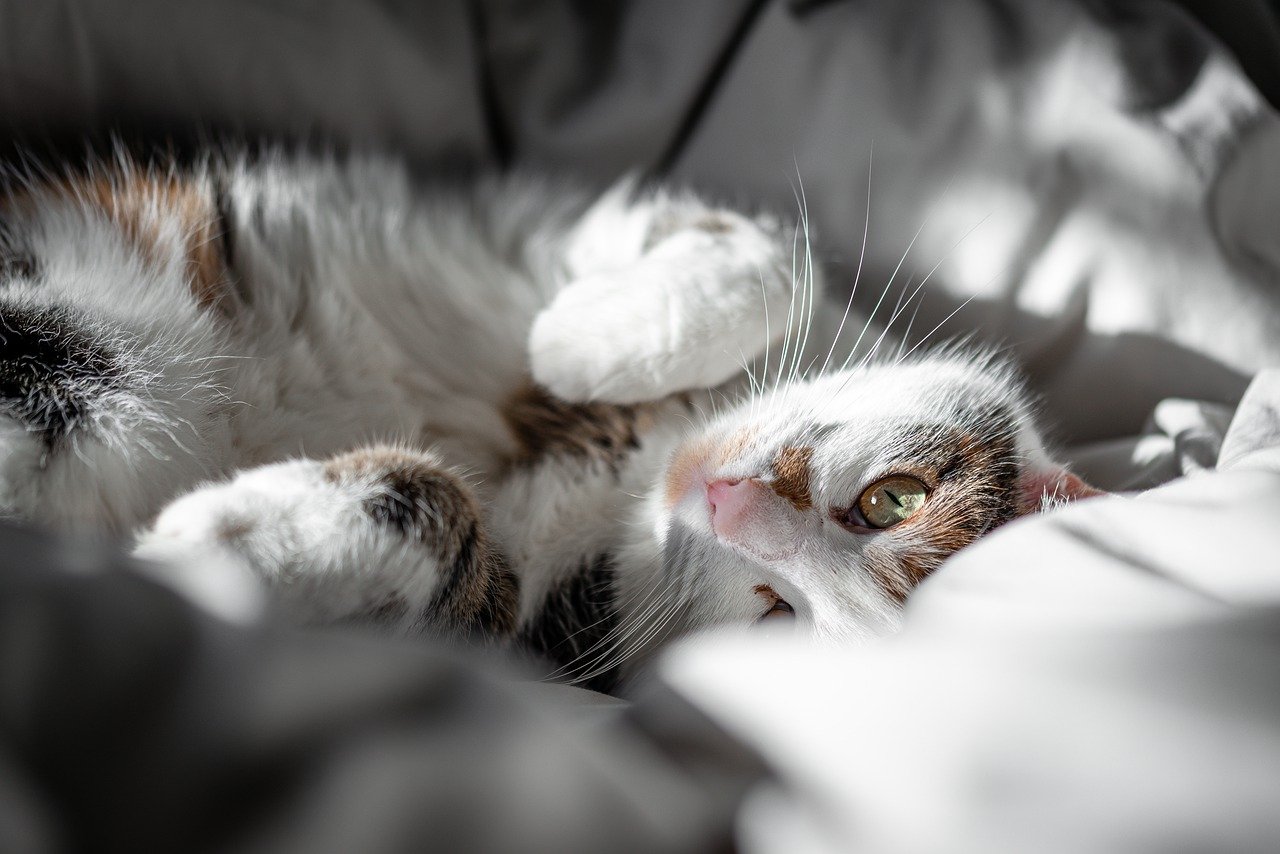
Owner Education and Support
When it comes to ensuring the health and happiness of your feline friend, education is key. Regular vet check-ups provide a golden opportunity for veterinarians to share invaluable knowledge with cat owners. During these visits, vets can discuss a variety of topics that are crucial for your cat’s well-being. For instance, they can educate you about the best nutrition tailored to your cat's age, breed, and health status. This personalized guidance can make a significant difference in your pet's diet, helping you make informed choices that promote a longer, healthier life.
Moreover, understanding your cat's behavior is essential for fostering a loving and nurturing environment. Vets can offer insights into common behavioral issues, helping you recognize signs of stress or discomfort. This knowledge empowers you as a pet owner to implement strategies that enhance your cat's mental health. For example, if your cat is showing signs of anxiety, a vet might suggest environmental adjustments or specific enrichment activities to keep your kitty engaged and relaxed.
Additionally, veterinarians often provide resources and support that extend beyond the clinic. They can recommend reputable pet care products, from toys to grooming supplies, ensuring that you have the right tools to care for your furry companion. They can also connect you with local pet services, such as training classes or pet sitters, which can further enrich your cat’s life.
Another vital aspect of owner education is understanding the importance of preventive measures. Vets will often discuss the necessity of regular vaccinations and parasite control, emphasizing how these measures can prevent serious health issues down the line. By being proactive and staying informed, you can help shield your cat from various diseases that can compromise their health.
For those who may be new to cat ownership or looking to enhance their existing knowledge, many veterinary clinics offer workshops or informational sessions. These events can cover a range of topics, such as:
- Basic cat care and grooming
- Understanding feline body language
- Managing health issues related to aging
- Nutrition and diet planning
In essence, the relationship between a cat owner and their veterinarian is a partnership built on trust and communication. By taking advantage of the educational opportunities presented during regular check-ups, you can become a more informed and confident pet owner. This not only enhances your cat’s quality of life but also strengthens the bond you share. Remember, a well-informed owner is a powerful advocate for their pet’s health and happiness!
Q: How often should I take my cat to the vet?
A: It’s generally recommended to take your cat for a check-up at least once a year. However, senior cats or those with health issues may require more frequent visits.
Q: What should I expect during a vet check-up?
A: During a routine check-up, the vet will perform a physical examination, discuss your cat's diet and behavior, and may recommend vaccinations or tests based on your cat’s health needs.
Q: Can I ask my vet questions during the check-up?
A: Absolutely! Vets are there to help you understand your cat’s health and care. Don’t hesitate to ask any questions or express concerns you may have.
Q: How can I prepare my cat for a vet visit?
A: To prepare your cat, try to make the experience less stressful by getting them accustomed to their carrier beforehand and keeping the environment calm. Bringing along their favorite toy or blanket can also help.
Frequently Asked Questions
- Why are regular vet check-ups important for my cat?
Regular vet check-ups are essential because they help identify health issues before they escalate. Think of it as a preventive maintenance plan for your feline friend; just like a car needs regular servicing to run smoothly, your cat needs these visits to ensure they stay healthy and happy.
- What common health issues can be detected during check-ups?
During routine check-ups, veterinarians can detect various common health issues such as dental disease, obesity, and even early signs of chronic conditions. Early detection is key, as it often leads to better treatment options and improved quality of life for your cat.
- How can regular vet visits help with my cat's dental health?
Regular vet visits allow for monitoring of your cat's dental health, helping to prevent issues like periodontal disease. Just like humans, cats can suffer from dental problems that can lead to serious health complications if not addressed. Your vet can recommend cleaning and care routines to keep those pearly whites in top shape!
- What role do vaccinations play in my cat's health?
Vaccinations are crucial in protecting your cat from various infectious diseases. Regular vet check-ups ensure that your cat's vaccinations are up to date, providing a strong defense against illnesses that could threaten their health and longevity.
- How can a vet help with my cat's behavioral issues?
Veterinarians can assess your cat's behavior during check-ups, offering valuable insights into their mental health. They can suggest strategies for managing stress and anxiety, which can make a world of difference in your cat's overall well-being and comfort.
- What can I do to help my cat feel more comfortable during vet visits?
To help your cat feel more comfortable during vet visits, consider familiarizing them with their carrier and taking them for short trips to the clinic. This can reduce anxiety and make future visits less stressful. Plus, don't hesitate to ask your vet for tips on managing your cat's stress levels!
- How can I maintain my cat's healthy weight?
Your veterinarian can provide guidance on maintaining a healthy weight for your cat, including advice on diet and exercise. Regular check-ups are a great opportunity to discuss your cat's nutrition and ensure they’re on the right track to avoid obesity-related diseases.
- What kind of education can I expect from my vet during check-ups?
During check-ups, veterinarians offer valuable education on various topics including nutrition, behavior, and general care. This knowledge empowers you as a cat owner to enhance your pet's quality of life and address any concerns you might have.

